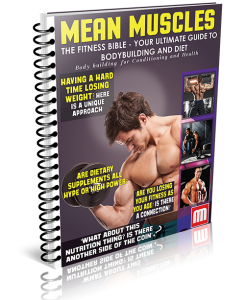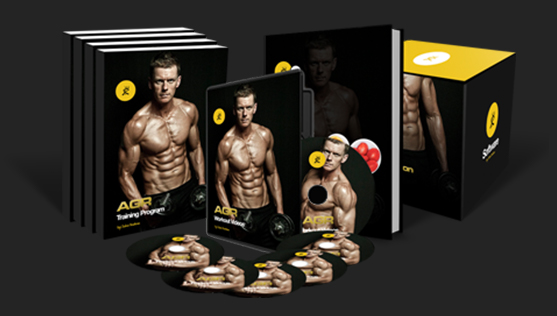When you’re looking for a diet plan to help you get ripped and lean body, as a male you probably do know that means: eating a lot of healthy food, quitting bad habits (smoking and drinking), and exercising a lot.
After all, your goal is not usually to slim down, but to bulk up, gain mass, shred that extra layer of fat, and have a stronger body. But since there so many diet plans out there how will you determine the best diet plan from the rest? Well, that depends on what’s your primary goal: Do you want to lose weight or build muscle?
Regardless, this article is tailored to provide you with information on which diet plan to follow in both cases, helping you to create a successful diet plan that will get you in good shape in no time.
But First…
Please note that if your diet plan isn’t what it needs to be, your workout routine will not be able to provide you with the results you desire. Even if you follow the greatest workout program without a proper diet, you will not be able to get a ripped body; instead you will just be killing your stamina gradually.
Therefore, it is important that you ‘pledge allegiance’ to the diet plan you follow, if you really want good results. Until you get around to doing that, follow this mini-guide to create your perfect diet plan.
Calorie Intake
Your calorie intake is the most important part of your diet plan. If your primary goal is to increase muscle mass and strength, you will need to increase your daily calorie count by an additional 250 or above calories per day. On the other hand, if you’re losing weight, then you will be required to create a daily caloric deficit below your maintenance level, which is usually around 20%.
In simpler words, every person has a certain number of calories they are required to eat everyday to maintain their current weight. Therefore, when aiming to build muscle, you will be required to exceed your traditional caloric count to help build muscle quickly and effectively. And when losing weight, you will need to cut down on your calorie intake or in other words switch to a healthier, but minimal diet.
Here’s the logic behind this diet plan: Once you start consuming LESSER calories per day than your usual amount, you will create a caloric deficit. Therefore, this will force your body to burn that extra fat stored. For example, if your regular caloric intake level is 2500, then you will need to cut it down to 2000. The same goes for when building muscle, if your regular caloric level is 2500, then you will need to increase it to 2750.
By following this simple calorie measuring plan, you will be able to lose between 0.5-2lbs per week if your goal is to lose weight. On the other hand, if your goal is to build mass, you will end up gaining 0.5lbs per week (or 2lbs in a month) by increasing the number of times you eat.
Fat Intake
A gram of fat contains approximately 9 calories. Therefore, fat should account for at least 25-30% of your total caloric intake, regardless of whether you want to lose weight or build muscle. For example, if your ideal calorie intake is 3000 calories per day, its 25% would be 750 calories. If you divide 750 by 9 you will figure out that you need to have 83 grams of fat per day.
However, it is important to understand that the fats mentioned here are healthy fats and not the fat that comes from eating junk foods. Some of the best foods that contain healthy fats include olive oil, seeds, walnuts, almonds, peanuts, fish oil supplements, and fish. If you didn’t already know, it takes healthy fat to kill fat. Therefore, healthy fats are actually quite good for your weight loss efforts.
Protein Intake
It doesn’t matter whether you’re losing weight or building muscle, in order to shred fat, build mass, and provide your body the energy to work out every day, it is important that you eat a healthy amount of proteins. The intake levels of course may vary per person, but the most accurate way to ensure you’re eating enough proteins is to measure grams of protein per pound of body weight.
For example, if you weigh 150lbs, you should aim for eating at least 150 grams of protein per day or a little more or less as you prefer it, depending on your goals. Some of the best high-protein foods include protein supplements, milk, egg whites/eggs, lean meats, turkey, fish, chicken, and mid-protein foods can include beans and nuts as well.
Other Considerations
In addition to the calories, fat, and protein intake, you must also maintain a sufficient carbs diet. A majority of your carb intake should come from whole wheat/whole grain and beans, white potatoes, sweet potatoes, rice (white, brown doesn’t matter), and of course fruits and vegetables.
But, that’s not all: You should also drink plenty of water every day. A minimum of 9 to 10 glasses of water are best for your workout efforts.
Or you can try the Adonis Golden Ratio system! Read our full review of this product!
The Fitness Bible – Your Ultimate Guide to Bodybuilding and Diet:
Bodybuilding for Conditioning and Health
The Astonishing Bodybuilding, Diet and Fitness Secrets
of the Fittest Bodybuilders in the World Revealed!



